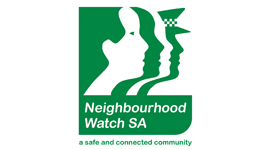Fallen officers remembered
11 Apr 2025 2:46pm
South Australia Police (SAPOL) members who lost their lives while serving overseas were commemorated this morning during an early Anzac Day memorial service.
Around 110 people united at SAPOL’s Wall of Remembrance at the Fort Largs Police Academy in memory of 25 police officers killed on active service leave from SAPOL, including 11 police officers in World War I, 13 in World War II, and one in Cyprus while on peacekeeping duties with the United Nations.
Her Excellency the Honourable Frances Adamson AC, Governor of South Australia, joined Commissioner of Police Grant Stevens APM LEM, Minister of Police Stephen Mullighan and other dignitaries and guests to honour those who paid the supreme sacrifice.
“We remember all 25 officers and their families affected by their unwavering commitment to their state and country, with honour they served,” Commissioner Stevens said.
“We acknowledge the sacrifice of each officer who joined other Australians fighting overseas and sadly never returned home.”
Police Chaplain, Reverend Mark Kleemann led the memorial service, which paid tribute to former SAPOL Foot Constable Alexander Graham – one of the first SAPOL officers to enlist in World War I and first to die on active service.
A commemorative address by Dr Barry Blundell APM LEM, of SA Police Historical Society, explored the fallen officer’s service until his passing on 24 September 1915.
Alexander Graham was born on the Isle of Rona, on 16 June 1888, and before emigrating to Australia, is believed to have served with the British military.
He joined SAPOL on 1 August 1914 and worked as a Foot Constable based at Adelaide Station for a short time before moving to Port Adelaide for nearly eight months until enlisting on 8 March 1915 with the Australian Imperial Forces.
“Graham embarked with the 6th reinforcements of the 10th Battalion on 23 June, travelling to Egypt. Following training, he then travelled to the Dardanelles on 1 August, joining his Battalion on August 4,” Dr Blundell said during his address.
“Graham’s first engagement with the enemy was two days later at the Battle of Lone Pine, where over four days some 6000 Ottomans and more than 2000 Anzacs were killed or wounded.
“By September, the 10th Battalion was losing 10 men a day to dysentery. Graham succumbed to the disease on 18 September, when he was admitted to hospital, soon being transferred to Alexandria, where on 24 September he died of his illness.”
Private Alexander Graham was buried in the Chatby War Cemetery in Alexandria, Egypt.
Meanwhile, the Band of the South Australia Police contributed to this morning’s service, which also featured hymns, readings, wreath laying, playing of The Last Post and a minute’s silence.
SAPOL members will also participate in and support other Anzac Day services throughout the state on Friday 25 April – the national day of remembrance.
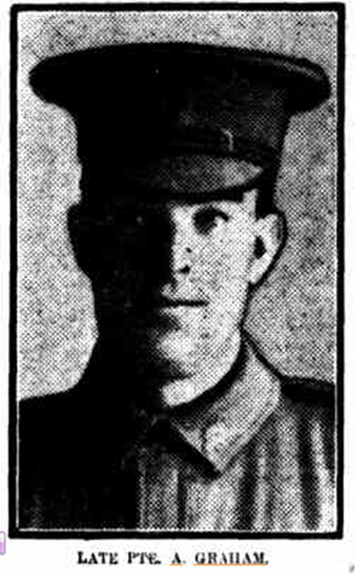
SAPOL Foot Constable Alexander Graham June 16, 1888 – September 24, 1915.
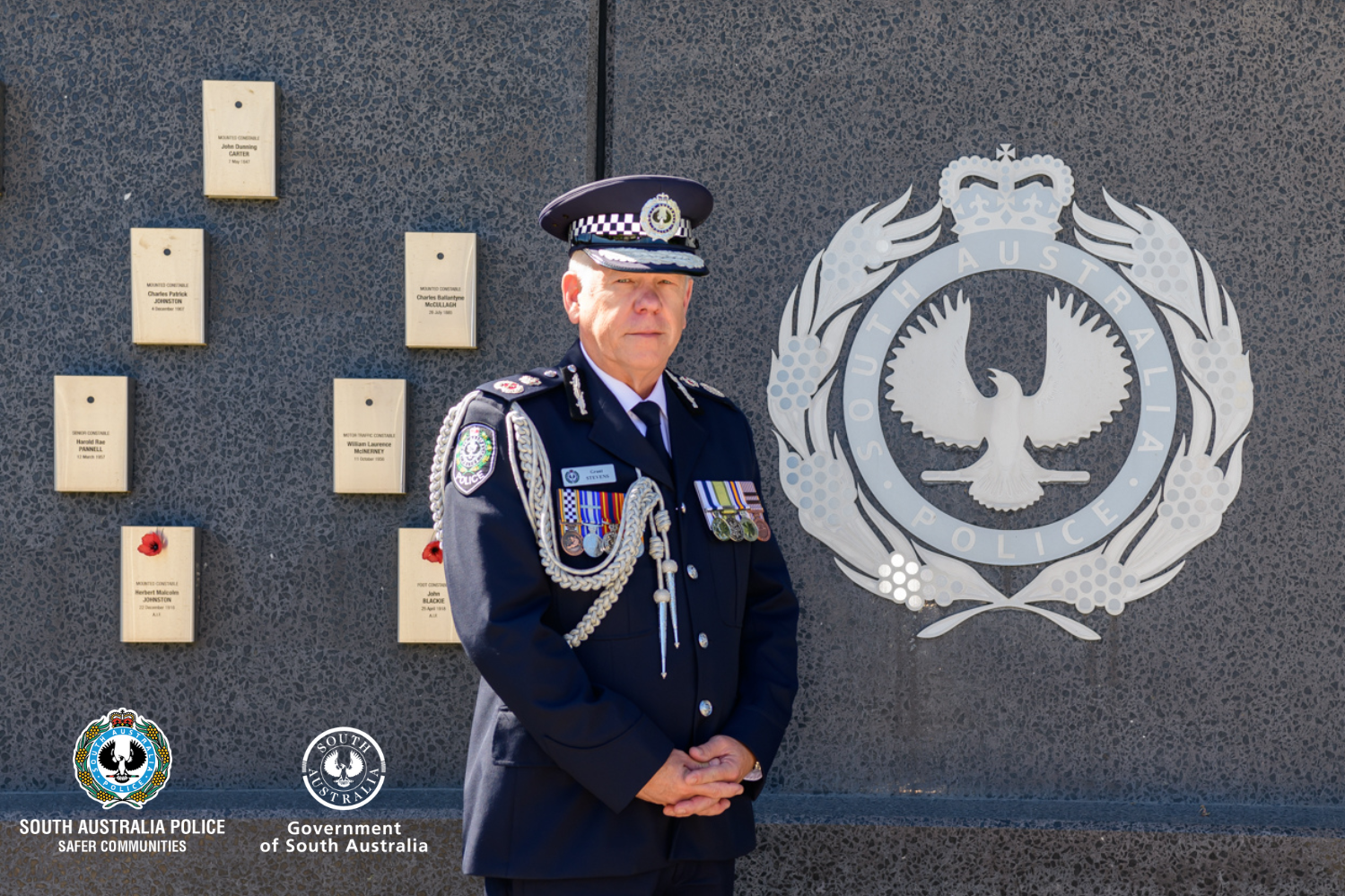
Commissioner of Police Grant Stevens APM LEM paying his respects at today's Anzac Day service at the South Australia Police Academy.
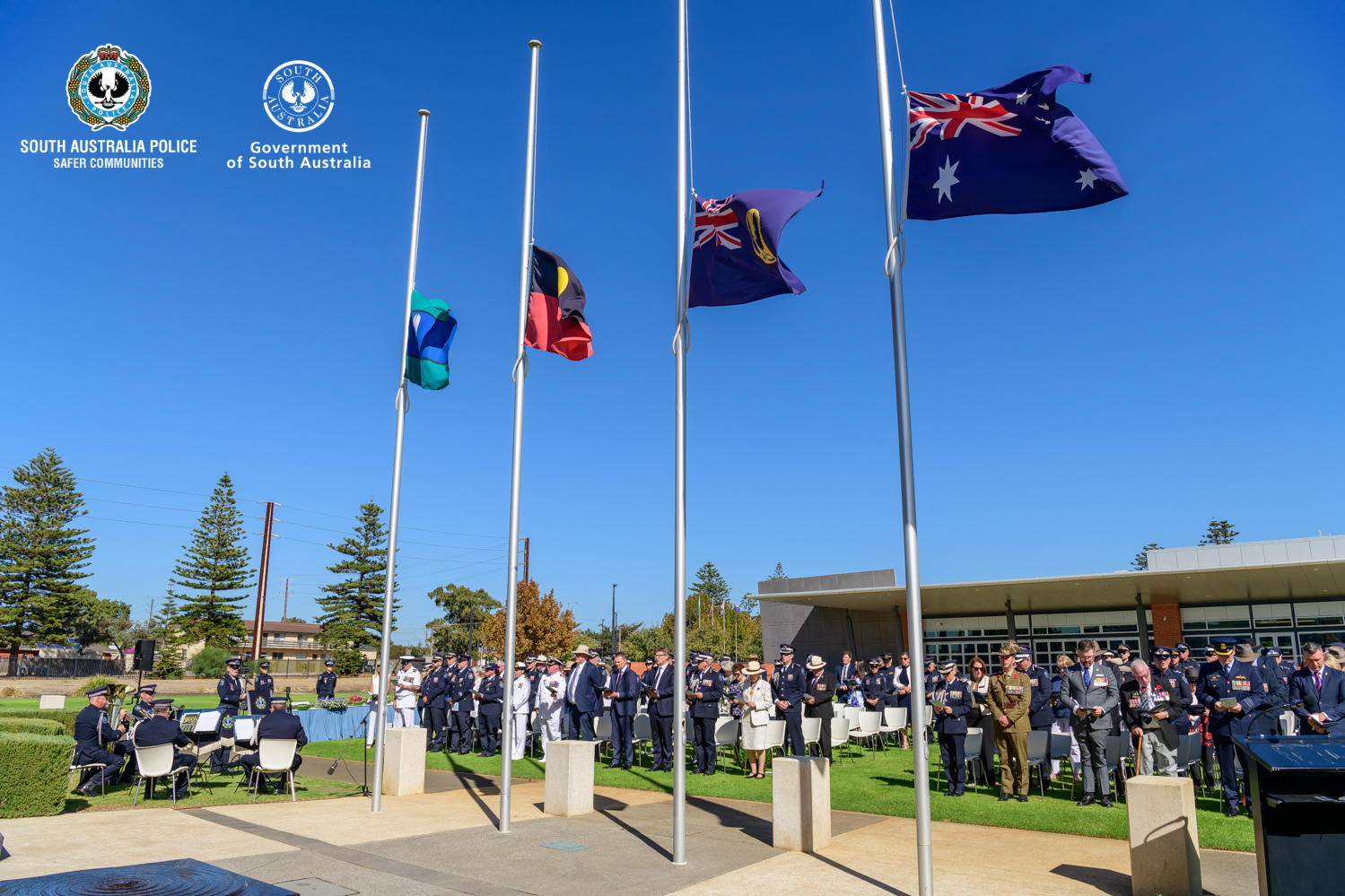
Around 110 people united at SAPOL’s Wall of Remembrance at the Fort Largs Police Academy.
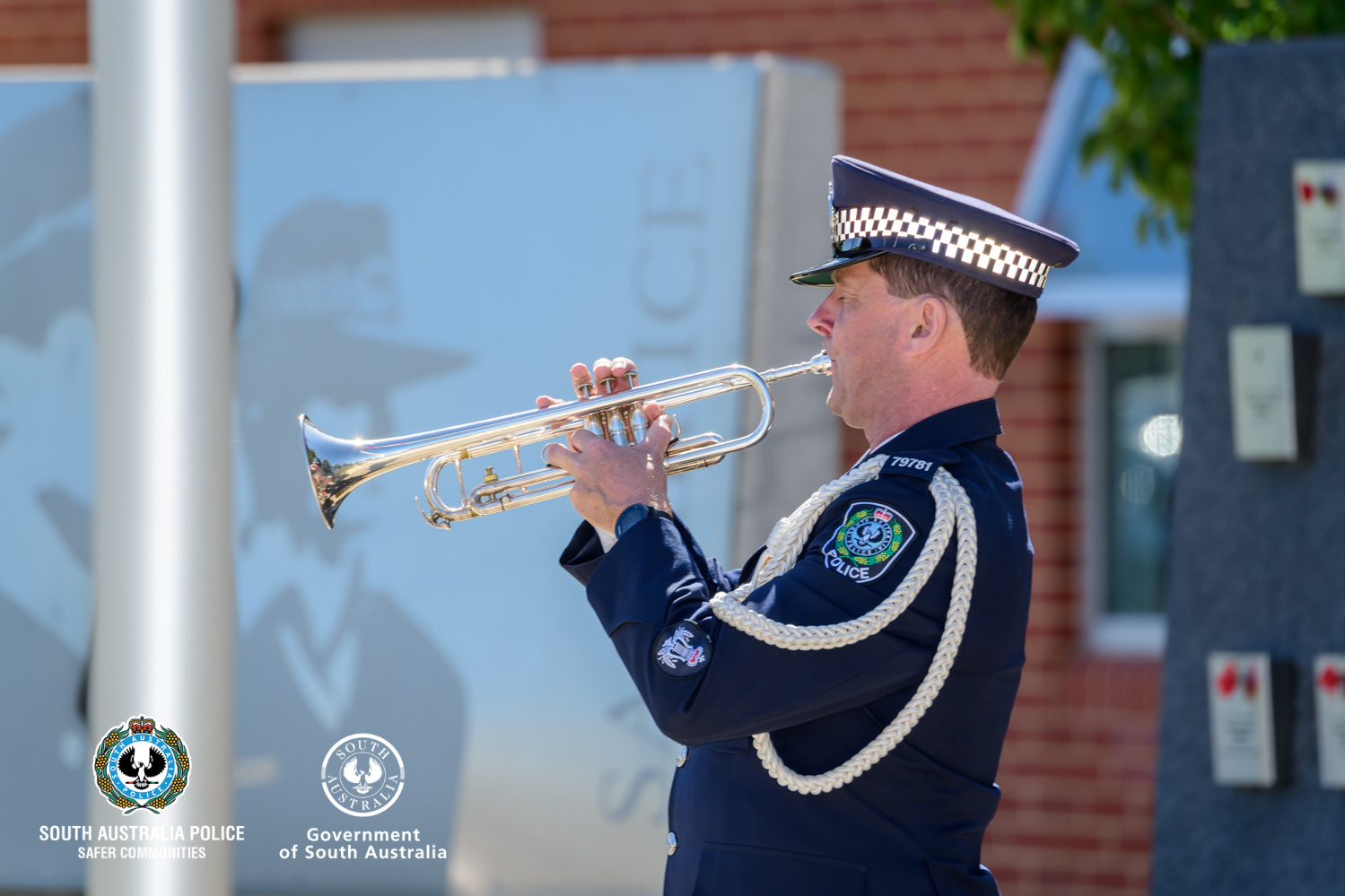
The Last Post.
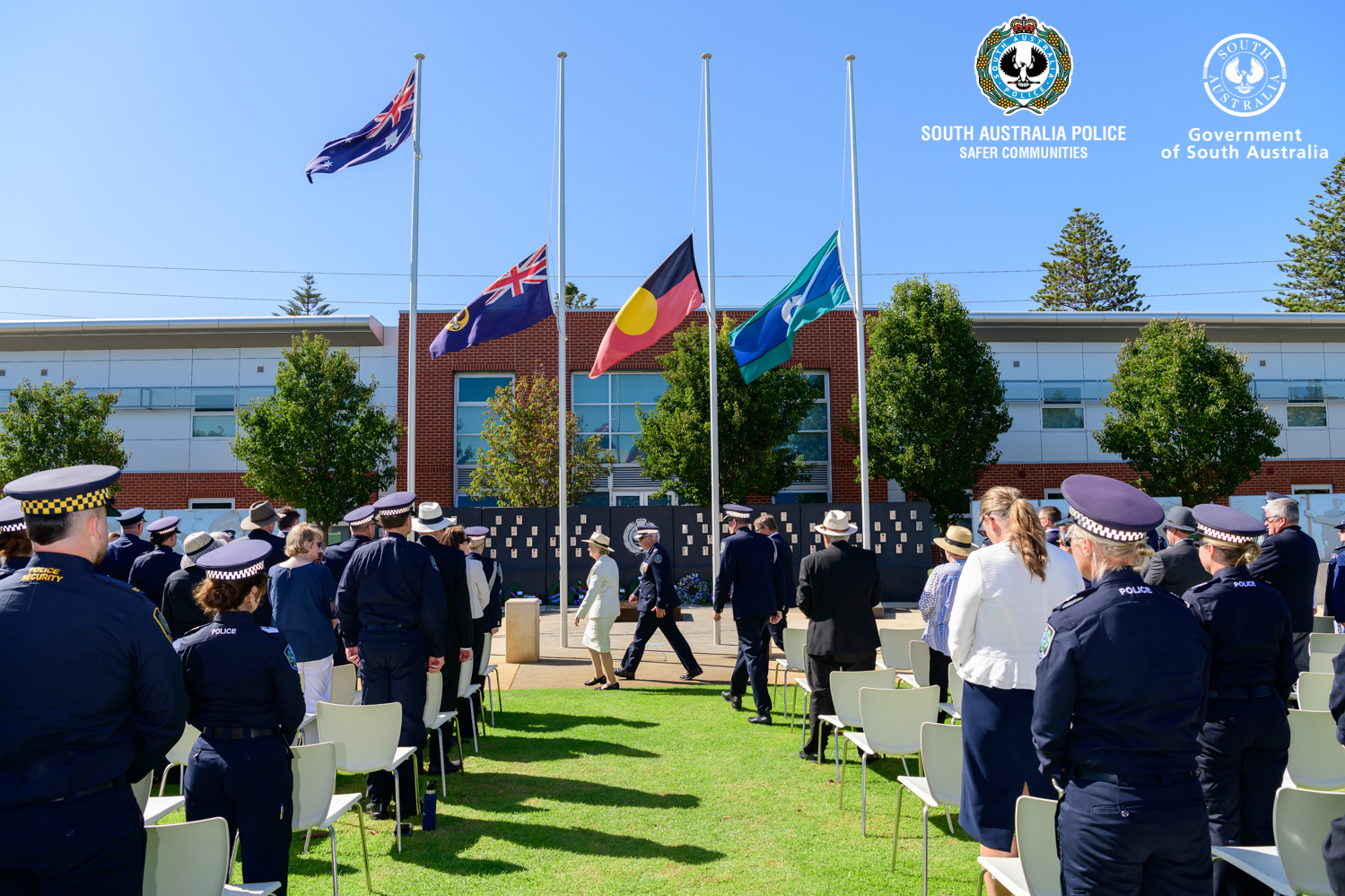
Her Excellency the Honourable Frances Adamson AC, Governor of South Australia, joined Commissioner of Police Grant Stevens APM LEM, Minister of Police Stephen Mullighan and other dignitaries and guests to honour those who paid the supreme sacrifice.
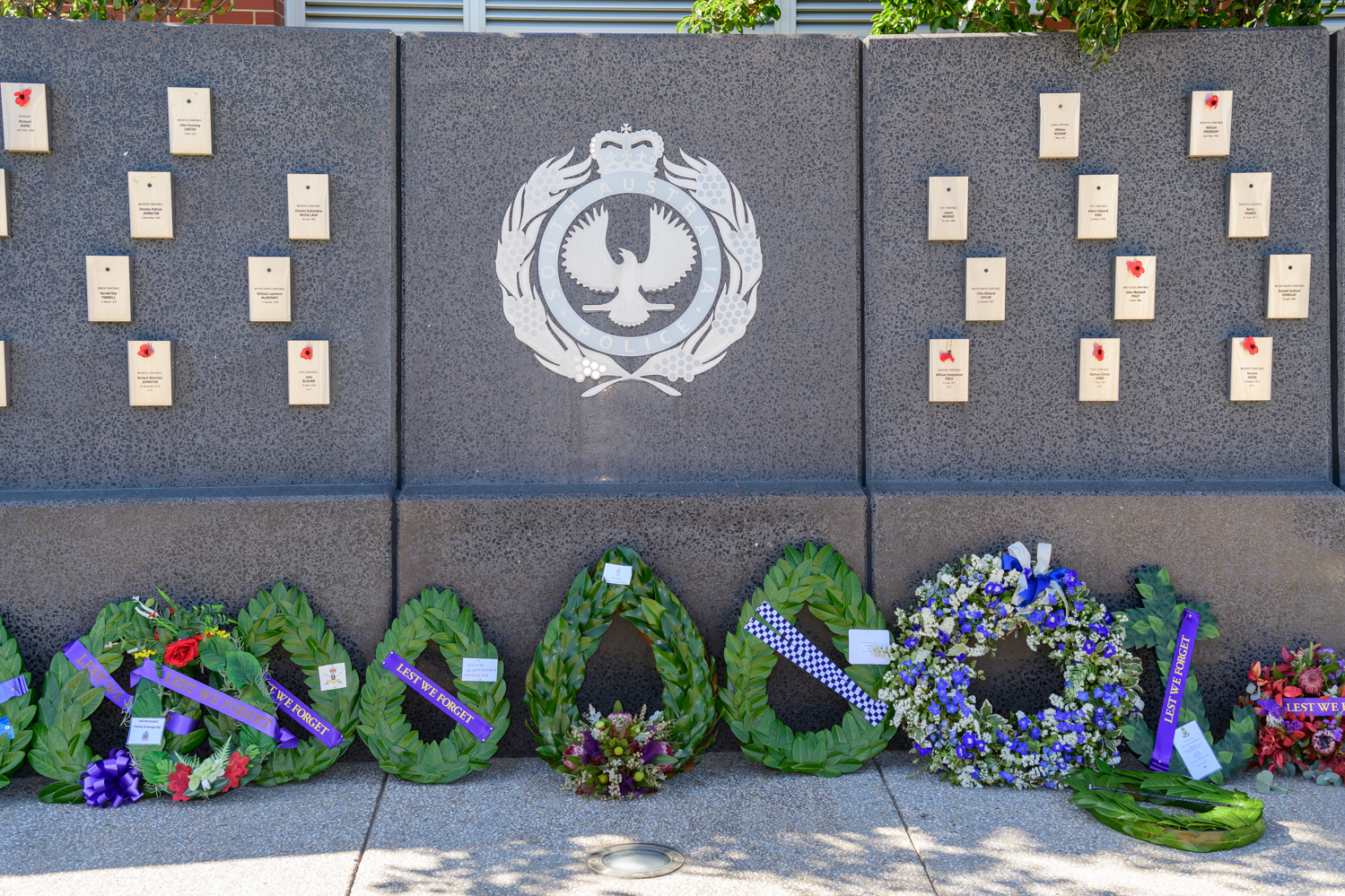
Wreaths laid in tribute to 25 police officers killed on active service leave from SAPOL, including 11 police officers in World War I, 13 in World War II, and one in Cyprus while on peacekeeping duties with the United Nations.

